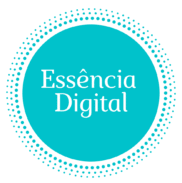For many talented freelancers, the word “negotiation” can trigger a sense of dread. We love the creative work, the problem-solving, and the freedom of our careers, but we often feel uncomfortable when it comes to talking about money, scope, and terms. This hesitation can be costly, leading to underpayment, scope creep, and a feeling of being undervalued.
But here’s a critical shift in mindset: negotiation is not a confrontation. It is the first act of collaboration. It’s the process where you and your client co-create the framework for a successful partnership.
Mastering the art of client negotiation isn’t about being aggressive or winning arguments. It’s about confidently communicating your value, understanding your client’s needs, and building a foundation of mutual respect. It is an essential skill that transforms you from a simple service provider into a trusted, strategic partner.
The Foundation: Know Your Value, Own Your Worth
The most common mistake in freelance negotiation is starting the conversation without a firm belief in your own value. If you aren’t convinced of your worth, you’ll never convince a client. Before you even think about quoting a price, you need to do your homework.
This goes beyond just your years of experience. You need to understand and articulate the tangible results you provide.
- Calculate Your ROI: How does your work benefit the client’s bottom line? Does your copywriting increase conversions? Does your design improve user engagement? Does your development work save them time? Quantify this value whenever possible (e.g., “My work on a similar project helped a past client increase their leads by 20%.”).
- Research Market Rates: Understand what other professionals with your level of expertise and in your niche are charging. This gives you an objective benchmark and prevents you from undervaluing yourself.
- Gather Social Proof: Compile your best testimonials, case studies, and portfolio pieces. These are powerful, third-party validations of your skill that speak louder than you can.
When you approach a negotiation armed with this data, you are no longer discussing your feelings; you are presenting a business case.
Your Negotiation Playbook: Define Your Goals and Limits
Never enter a negotiation blind. A professional prepares. Creating a simple “Negotiation Playbook” before each client conversation removes emotion from the process and empowers you to make clear-headed decisions.
Your playbook should include:
- Your Ideal Outcome: What is the perfect scenario? This includes your ideal rate, timeline, and scope of work. This is what you will anchor the conversation around.
- Your Reservation Point: This is your absolute, non-negotiable walk-away point. What is the lowest rate you will accept? The longest timeline? Knowing this in advance prevents you from accepting a bad deal out of desperation.
- Your BATNA (Best Alternative to a Negotiated Agreement): What will you do if this deal falls through? Having other prospects, a personal project, or marketing activities to focus on is your greatest source of power. It allows you to negotiate from a position of confidence, not need.
From Adversary to Ally: The Collaborative “Win-Win” Frame
A negotiation should feel like a problem-solving session, not a battle. Frame the conversation as “us vs. the problem” (e.g., “How can we achieve your goals within your budget?”) rather than “me vs. you.” This collaborative approach lowers defenses and opens the door to creative solutions.
Use open-ended questions to understand the client’s true priorities:
- “To make sure I’m proposing the best solution, what does a huge success for this project look like in six months?”
- “What is the most critical element of this project for you?”
- “Is there any flexibility in the timeline or the list of deliverables? This can help us align the scope with your budget.”
When clients see you as a partner invested in their success, they are far more likely to work with you to find a mutually beneficial agreement.
The Power of Principled Negotiation
Trust is built on transparency and professionalism. Your negotiation should be based on principles and objective criteria, not emotional appeals.
- Be Clear and Direct: State your terms confidently. Instead of the weak, “I was hoping to get around $2,000 for this,” use the strong, “My rate for this project, based on the scope we’ve discussed, is $2,000.”
- Justify with Value, Not Need: Never say, “I need to charge this because my rent is due.” Instead, say, “This rate reflects the value of the work, my 10 years of experience in this niche, and the results I’ve delivered for clients like [Past Client].”
- Listen More Than You Speak: When a client raises an objection, don’t immediately jump to defend yourself. Listen carefully to understand their underlying concern. Often, an objection about price is actually a concern about risk or value.
The Ultimate Power Move: The Graceful Exit
Sometimes, the most successful outcome of a negotiation is walking away. If a client is disrespectful, insists on a rate that is far below market value, or doesn’t align with your professional standards, accepting the project will cost you more in the long run.
Walking away is not a failure; it is a successful act of protecting your business and your self-respect.
Example of a professional, graceful exit:
“I appreciate you sharing your budget. I understand that my pricing is outside of what you have allocated for this project. I’m confident in the value and results I deliver at this rate, so I’ll have to pass for now. I genuinely wish you the best of luck finding the right partner and would be happy to reconnect if your budget or scope changes in the future.”
This response is polite, firm, reinforces your value, and leaves the door open.
Conclusion
Negotiation is a skill, not an innate talent. It is a muscle that gets stronger with practice. Each conversation is an opportunity to learn and refine your approach. By preparing thoroughly, framing the conversation collaboratively, and being willing to walk away, you shift the dynamic entirely.
Mastering negotiation isn’t about winning or losing. It’s about confidently and professionally communicating the immense value you work so hard to create every single day.

